7 Best Healthy Nuts That Can Improve Memory Retention Easily – Our memory is an essential cognitive function that allows us to store and retrieve information. Whether it’s recalling a cherished childhood memory or remembering important details for a presentation, a sharp memory is crucial for our daily lives. Fortunately, certain nuts are packed with nutrients that can aid in memory retention and cognitive function. In this article, we will explore the seven best healthy nuts that can naturally improve memory retention with their unique properties and delicious flavors.
Why is memory retention important?
Memory retention is essential for our overall cognitive abilities. It allows us to remember and learn from past experiences, retain knowledge, and make informed decisions. A sharp memory is particularly valuable for students, professionals, and individuals of all ages who want to maintain cognitive vitality.
1. Almonds: A memory-boosting powerhouse

Nutritional profile of almonds
Almonds are a versatile nut that provides a wealth of nutritional benefits. They are an excellent source of vitamin E, which acts as an antioxidant, protecting our brain cells from oxidative stress. Additionally, almonds are rich in healthy fats, fiber, and protein, making them a nutritious snack option.
Role of Almonds in memory improvement
Research suggests that almonds can positively impact memory retention. The combination of vitamin E and other antioxidants found in almonds helps reduce inflammation and oxidative damage in the brain, which can enhance memory function. Moreover, almonds contain essential nutrients like magnesium and B vitamins, which support overall brain health and cognitive function. Additionally, the results of one study suggest that almond administration for 28 days significantly improved memory retention in cases.
Ways to incorporate almonds into your diet
Incorporating almonds into your daily diet is easy and enjoyable. You can snack on a handful of almonds as a quick and convenient option, or add them to your breakfast by sprinkling chopped almonds over yogurt or oatmeal. Almond butter is another delicious and versatile option that can be spread on toast or used as a dip for fruits and vegetables.
2. Walnuts: The brain-shaped nut
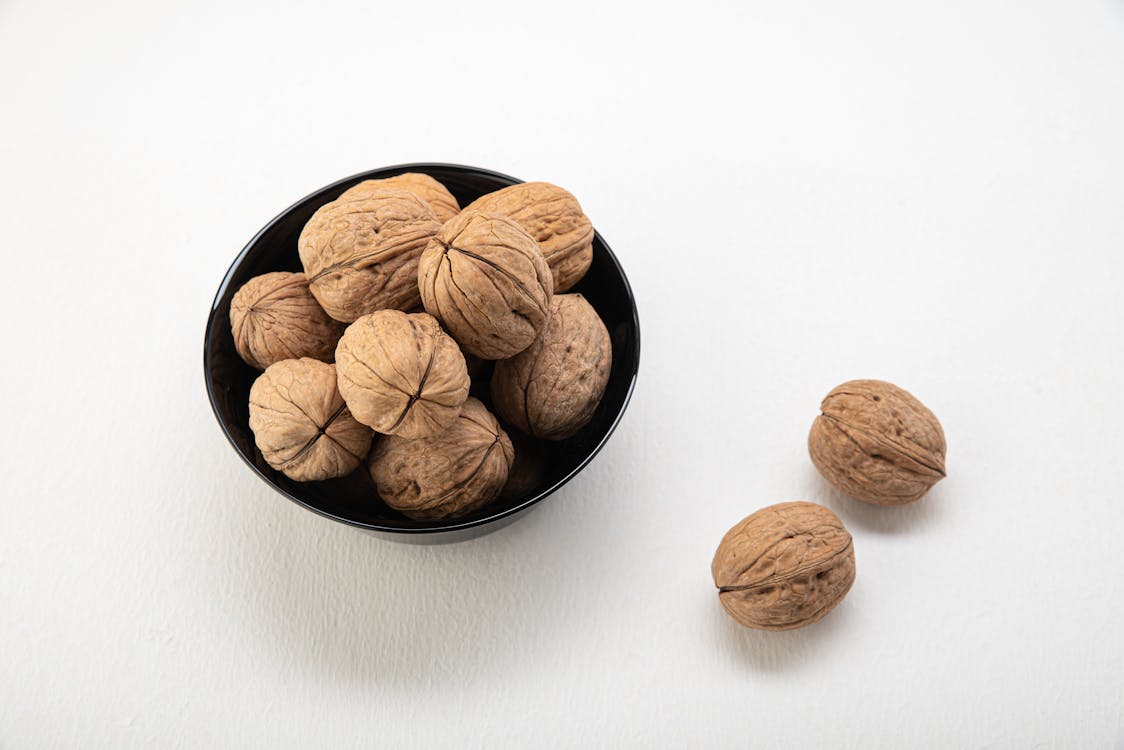
Nutritional profile of walnuts
Walnuts, with their unique brain-shaped appearance, are not only visually appealing but also highly beneficial for memory enhancement. They are an excellent source of omega-3 fatty acids, which are essential for brain health and cognitive function. Walnuts are also rich in antioxidants, vitamins, and minerals.
Benefits of walnuts for memory enhancement
Studies have shown that the high levels of antioxidants and polyphenols found in walnuts can improve cognitive function, including memory retention. The omega-3 fatty acids present in walnuts are known to support brain health and protect against age-related cognitive decline. Consuming walnuts regularly may also help reduce inflammation and improve blood flow to the brain, further enhancing memory.
Creative ways to add walnuts to your meals
Adding walnuts to your meals can add a delightful crunch and boost your memory retention. Sprinkle chopped walnuts over salads, stir them into yogurt or oatmeal, or include them in baked goods like muffins or banana bread. You can even make walnut butter as a delicious and nutritious alternative to traditional spreads.
RELATED: 7 Best Healthy Fruits That Can Improve Brain Function Easily
3. Cashews: A tasty memory booster
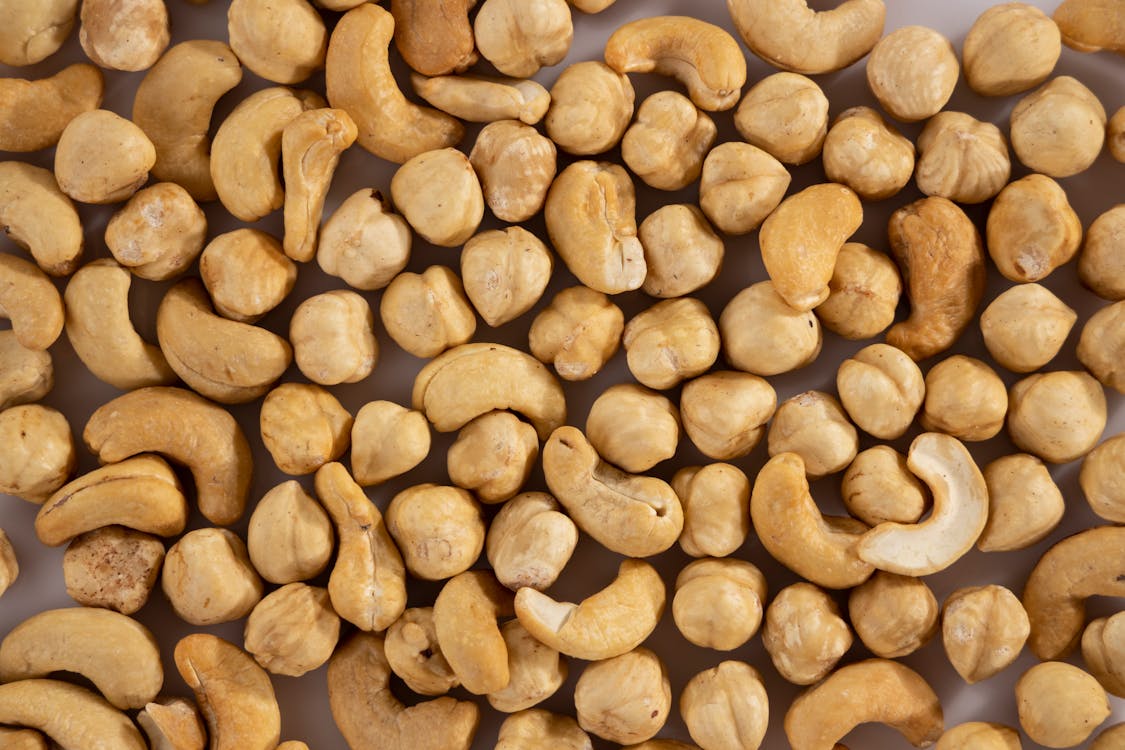
Nutritional profile of cashews
Cashews, with their creamy texture and mild taste, are not only a delightful snack but also contribute to improved memory retention. They are an excellent source of essential nutrients such as magnesium, zinc, and vitamin K, which are vital for brain health.
How cashews support memory function
Cashews contain antioxidants that help reduce inflammation in the brain and protect against neurodegenerative diseases. They also provide a good amount of magnesium, which plays a crucial role in enhancing memory and cognitive function. Additionally, cashews are a natural source of tryptophan, an amino acid that aids in the production of serotonin, a neurotransmitter associated with mood regulation and memory.
Delicious ways to enjoy cashews in your diet
Incorporating cashews into your diet can be a delightful experience. Enjoy a handful of cashews as a satisfying snack, or add them to stir-fries and curries for a creamy texture and nutty flavor. Cashew butter is a delicious spread that can be enjoyed on toast or used as a dip for fruits and vegetables.
4. Pistachios: Small but mighty for memory
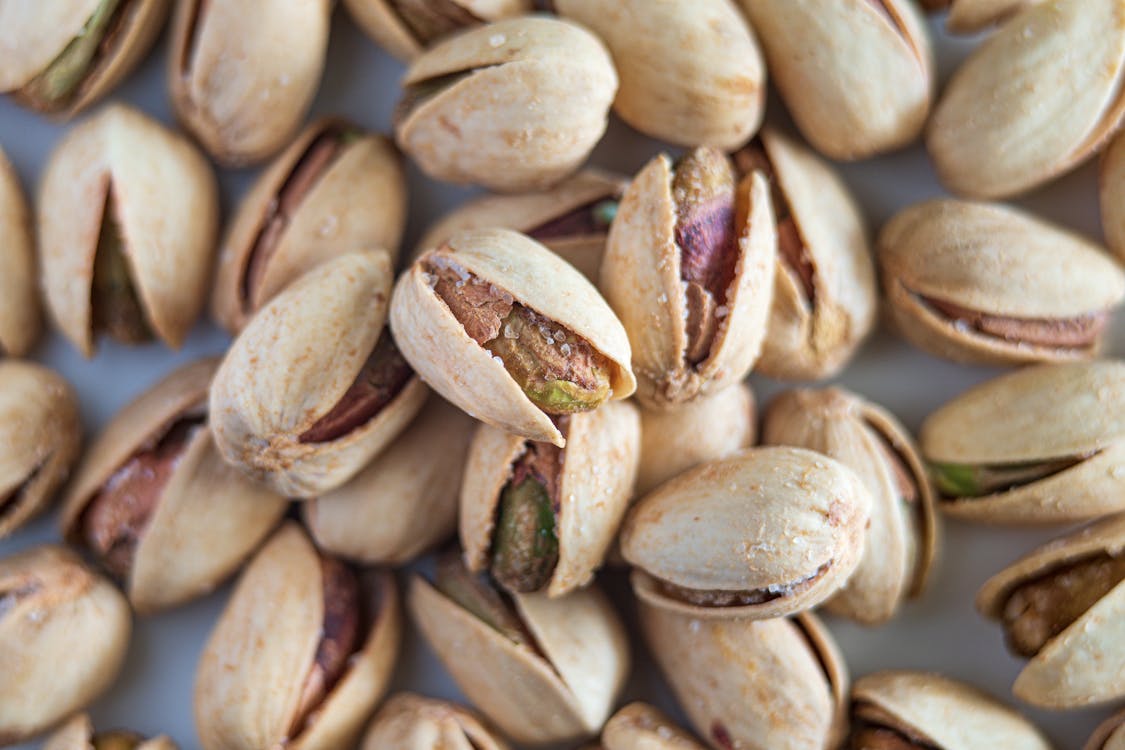
Nutritional profile of pistachios
Pistachios may be small in size, but they are packed with essential nutrients that can benefit memory retention. They are an excellent source of vitamins, minerals, and antioxidants. Pistachios are particularly known for their high content of antioxidants such as vitamin E and resveratrol.
Memory-enhancing properties of pistachios
The unique combination of nutrients in pistachios makes them a powerful ally for memory improvement. The antioxidants in pistachios help protect brain cells from oxidative stress, supporting long-term cognitive health. Furthermore, pistachios contain beneficial fats, including monounsaturated fats and omega-3 fatty acids, which contribute to brain health and optimal memory function.
Tasty recipes incorporating pistachios
There are numerous creative ways to incorporate pistachios into your meals and snacks. Add crushed pistachios to your salads for an extra crunch and burst of flavor. You can also use them as a topping for yogurt or sprinkle them over roasted vegetables. For a delightful treat, try making pistachio-crusted chicken or adding them to your favorite homemade granola recipe.
5. Brazil nuts: A rich source of memory-boosting nutrients
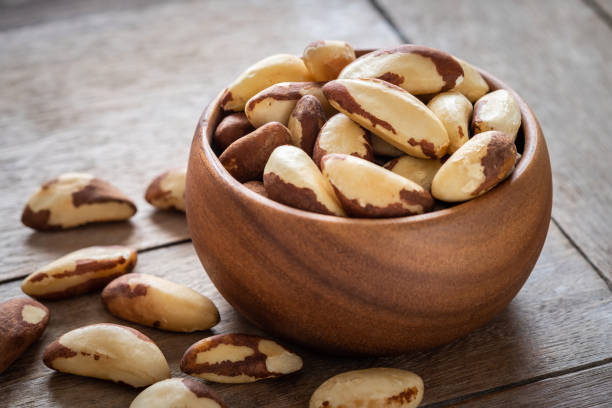
Nutritional profile of Brazil nuts
Brazil nuts are not only delicious but also a rich source of essential nutrients. They are particularly known for their high selenium content, a powerful mineral that plays a crucial role in brain health and memory retention. Brazil nuts also provide healthy fats, protein, and fiber.
Selenium and its impact on memory
Selenium is a vital nutrient for brain health, and Brazil nuts are one of the best natural sources of this mineral. Selenium acts as an antioxidant, protecting the brain from oxidative stress and inflammation. Studies have shown that selenium deficiency can be linked to cognitive decline and impaired memory function. Including Brazil nuts in your diet can help ensure an adequate intake of selenium, supporting optimal memory retention.
Ideas for incorporating Brazil nuts into your routine
Enjoy the unique flavor and memory-boosting benefits of Brazil nuts by incorporating them into your daily routine. Snack on a small handful of Brazil nuts as a nutritious and satisfying option. You can also chop them and add them to your favorite trail mix or sprinkle them over your morning cereal. Remember, Brazil nuts are rich in selenium, so moderation is key. Just a few nuts per day can provide the recommended daily intake of this important mineral.
6. Pecans: Nutritious and beneficial for memory retention
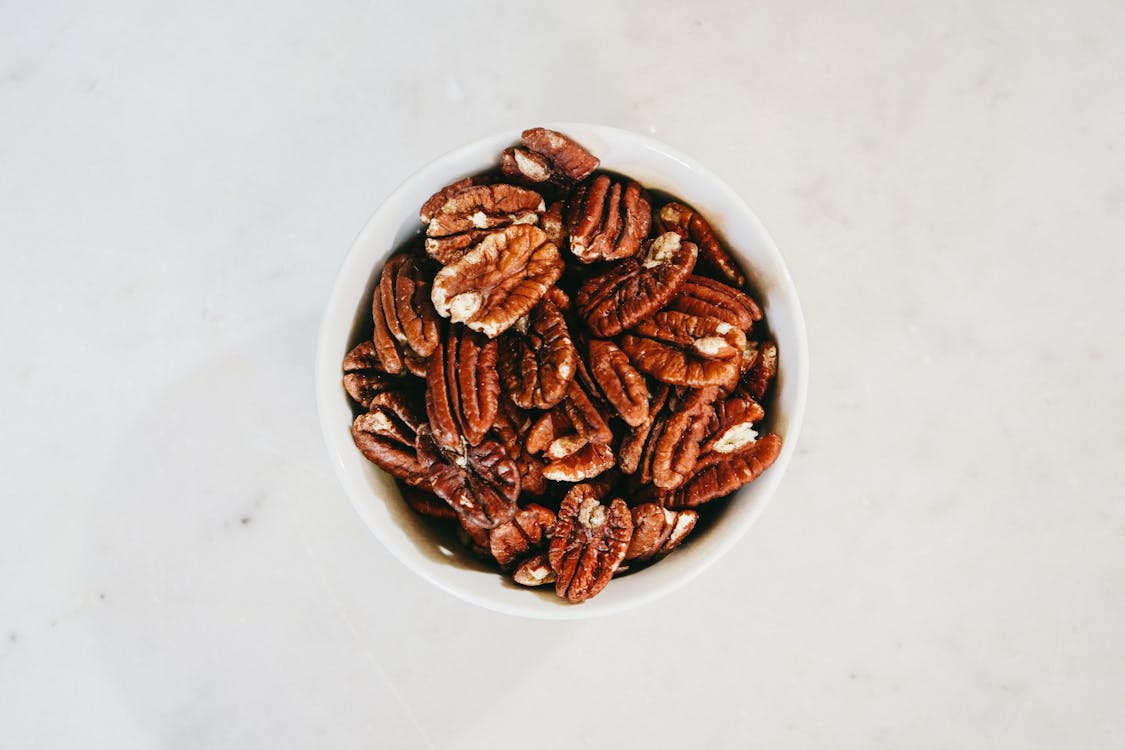
Nutritional profile of pecans
Pecans are not only delicious but also offer a wide array of nutritional benefits. They are rich in healthy fats, including monounsaturated fats and omega-3 fatty acids, which are essential for brain health and cognitive function. Pecans also provide a good amount of fiber, vitamins, and minerals.
Pecans and their positive effects on memory
The unique combination of nutrients in pecans makes them beneficial for memory retention. The healthy fats in pecans support brain health and cognitive function. Additionally, pecans are rich in antioxidants, including vitamin E, which helps protect brain cells from damage caused by free radicals. Regular consumption of pecans may help improve memory and cognitive performance.
Ways to include pecans in your diet
Adding pecans to your diet is both enjoyable and nutritious. Snack on a handful of pecans for a quick energy boost, or sprinkle them over salads and roasted vegetables for added flavor and texture. Pecans can also be incorporated into baking recipes such as cookies, cakes and pies to enhance both taste and nutritional value. You can even create a homemade pecan butter to spread on toast or use as a dip for fruits.
7. Macadamia nuts: A creamy treat for memory enhancement
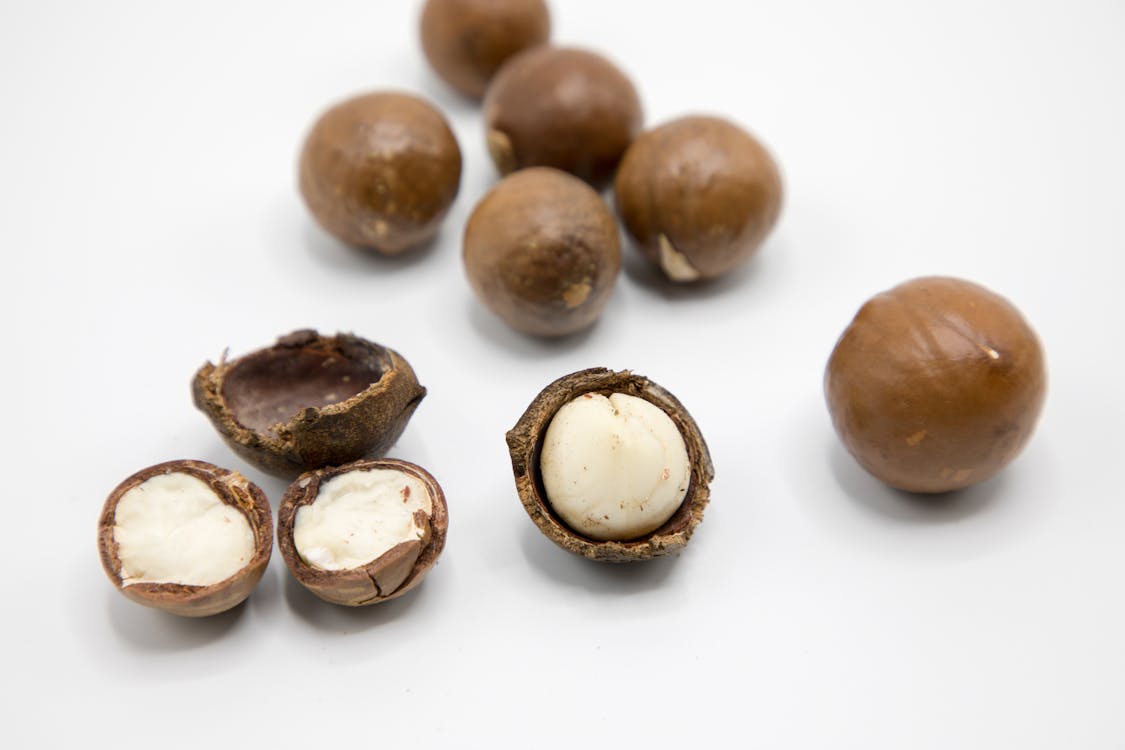
Nutritional profile of macadamia nuts
Macadamia nuts are known for their rich, creamy texture and delightful flavor. They are also a fantastic choice for improving memory retention due to their nutritional composition. Macadamia nuts are high in monounsaturated fats, which are beneficial for brain health. They also provide essential minerals like magnesium and copper.
Memory benefits of macadamia nuts
The monounsaturated fats found in macadamia nuts support healthy blood flow to the brain, promoting optimal cognitive function and memory retention. Additionally, the presence of magnesium in macadamia nuts helps reduce stress and anxiety, which can have a positive impact on memory. Copper, another mineral found in macadamia nuts, plays a vital role in the development and maintenance of the central nervous system.
Enjoying macadamia nuts in various dishes
Incorporating macadamia nuts into your diet can be a delightful experience. Snack on a handful of raw macadamia nuts for a quick and satisfying treat. You can also add them to homemade granola or trail mix for an added crunch. Furthermore, macadamia nuts can be used as a flavorful topping for salads or blended into creamy sauces and spreads.
FAQs
Q: Are there any side effects of consuming these nuts?
A: Generally, these nuts are safe to consume for the majority of individuals. However, some people may have allergies or sensitivities to certain nuts. It’s essential to be aware of any allergies you may have and avoid consuming nuts that trigger adverse reactions.
Q: Can nuts alone improve memory, or should they be combined with other foods?
A: While nuts offer valuable nutrients and benefits for memory retention, it’s essential to maintain a balanced diet that includes a variety of foods. Incorporating nuts into a well-rounded eating plan, along with fruits, vegetables, whole grains, and lean proteins, can provide optimal support for cognitive function.
Q: How many nuts should I eat per day for optimal memory enhancement?
A: There is no one-size-fits-all answer to this question. It’s generally recommended to consume a handful of nuts, around 1 ounce, per day as part of a balanced diet. However, individual nutritional needs may vary, so it’s best to consult with a healthcare professional or nutritionist for personalized recommendations.
Q: Can children consume these nuts for better memory?
A: Nuts can be a nutritious addition to a child’s diet; however, it’s important to consider potential choking hazards and individual allergies. For young children, it’s recommended to offer nuts in age-appropriate forms such as nut butters or finely chopped nuts.
Q: Are roasted nuts as beneficial for memory as raw nuts?
A: While roasted nuts may still retain some of their nutritional benefits, it’s worth noting that the roasting process can lead to the loss of certain heat-sensitive nutrients. Raw nuts are generally considered to be the most nutrient-dense option. However, if you prefer the taste and texture of roasted nuts, opt for dry-roasted varieties without added oils or excessive salt to maximize their nutritional value.
Copyright © 2022 Soundhealthandlastingwealth.






